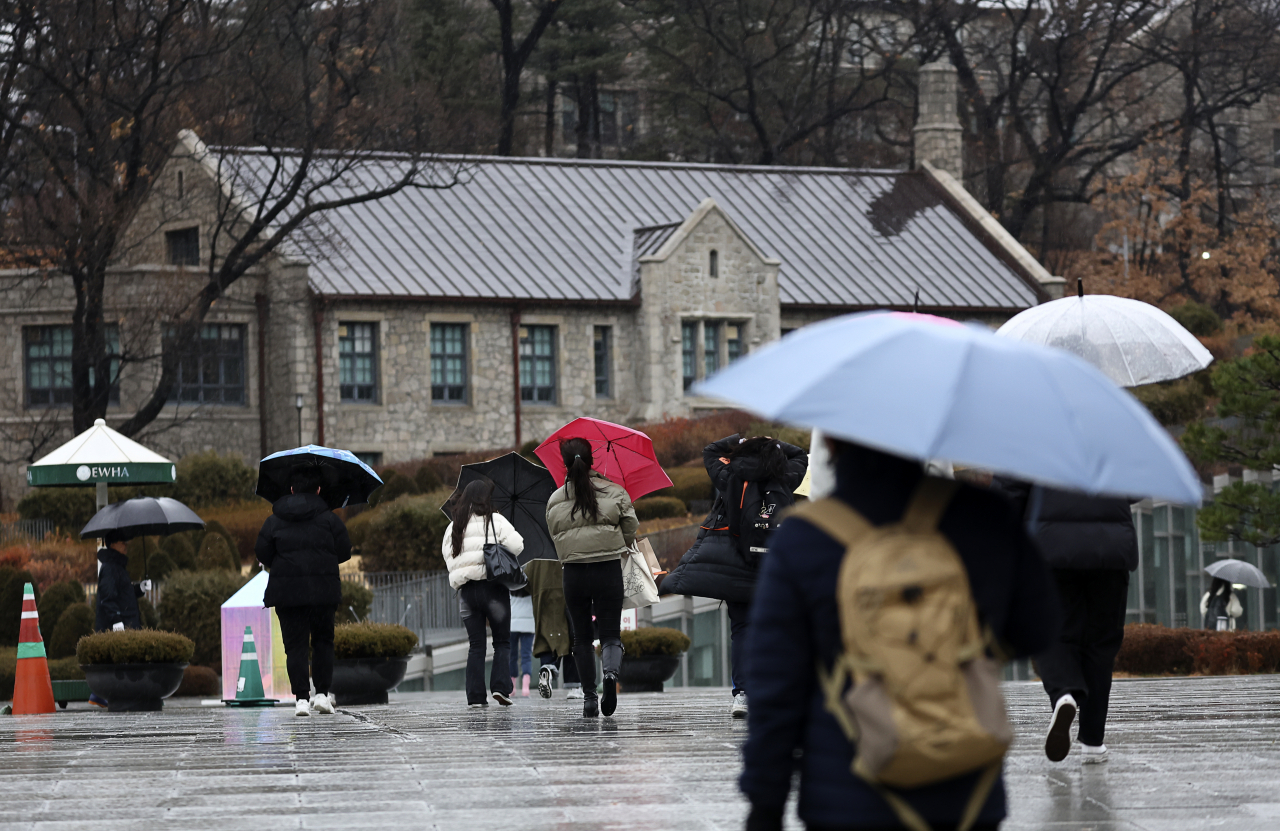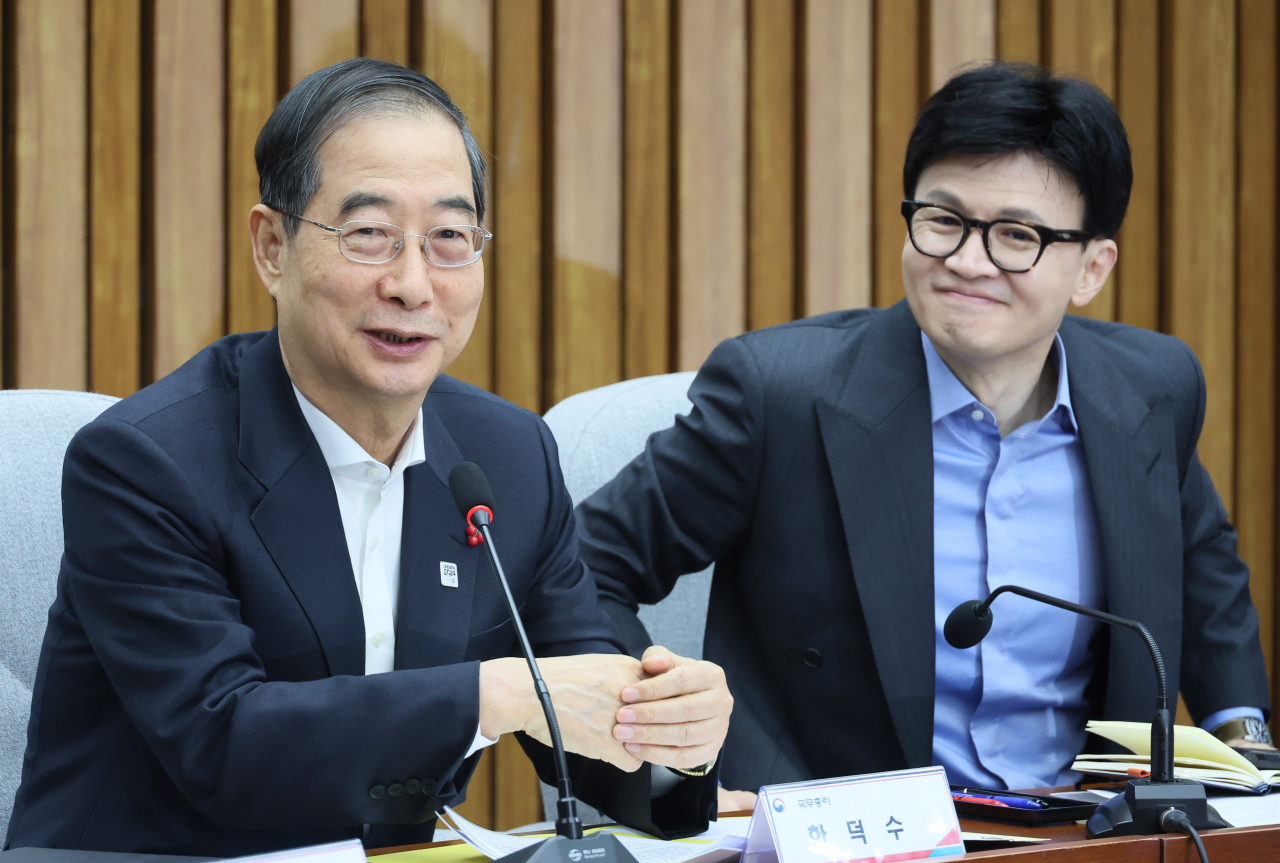PPP's Han hints at measures to ease college tuition costs
By Son Ji-hyoungPublished : Jan. 14, 2024 - 14:37

Interim leader of the ruling People Power Party Han Dong-hoon on Sunday called for "groundbreaking" policy measures to help students alleviate the burden of college tuition costs.
At a meeting of government representatives, the ruling party and President Yoon Suk Yeol's office, Han asked meeting participants to devise more policies to tackle tuition costs for tertiary education. South Korea's annual average tuition fees are estimated to be the eighth-highest among the 27 member nations of the Organization for Economic Cooperation and Development, which provided the available data.
"I believe the government now has many options to help students reduce the burden on college tuition because we are seeing many proposals from various channels," Han said.
"(The People Power Party) will muster up efforts to narrow down this gap in the society, ... as such gaps (serve only to) hamper social integration," added Han, the prosecutor-turned-politician who has led the ruling party since December.
Han's comments came as a follow-up to an announcement by the Ministry of Education on Friday, which said it plans to spend 433.5 billion won ($329.6 million) for some 2.1 million college-goers, in a bid to increase access to scholarship programs and ease the financial burden on student debt repayment.
The burden of tertiary education on students has long been a problem in the country where pursuing tertiary education is considered a universal goal with about 50 percent of 25-34 years olds having attained a bachelor's degree or higher.

According to the Education Ministry's 2023 data on universities running full-cycle bachelor's degree programs, each student pays an average of 6.79 million won per year, although over 9 out of 10 universities running such programs have decided to freeze tuition fees. The gap between private universities and public universities remains large, with those enrolling in private institutions paying a yearly average of 7.57 million won, and those going to public institutions being charged a yearly average of 4.2 million won.
In the meantime, South Korean universities are suffering a lack of financial aid from the state when compared to their OECD peers. As of 2020, the latest data available, 43.3 percent of the total expenditure on tertiary education institutes here came from the government, far lower than the 67.1 percent OECD average.
Sunday's meeting was held to come up with measures to relieve financial burdens on citizens in the wake of the Lunar New Year's holiday, referred to as Seollal in Korean.
According to the People Power Party, the utility price hike will be deferred for some 3.65 million households in the low-income bracket, while borrowing costs will be lowered for 400,000 citizens who took out a loan from savings banks, while toll fees on highways over the Seollal holiday will be paused.



















